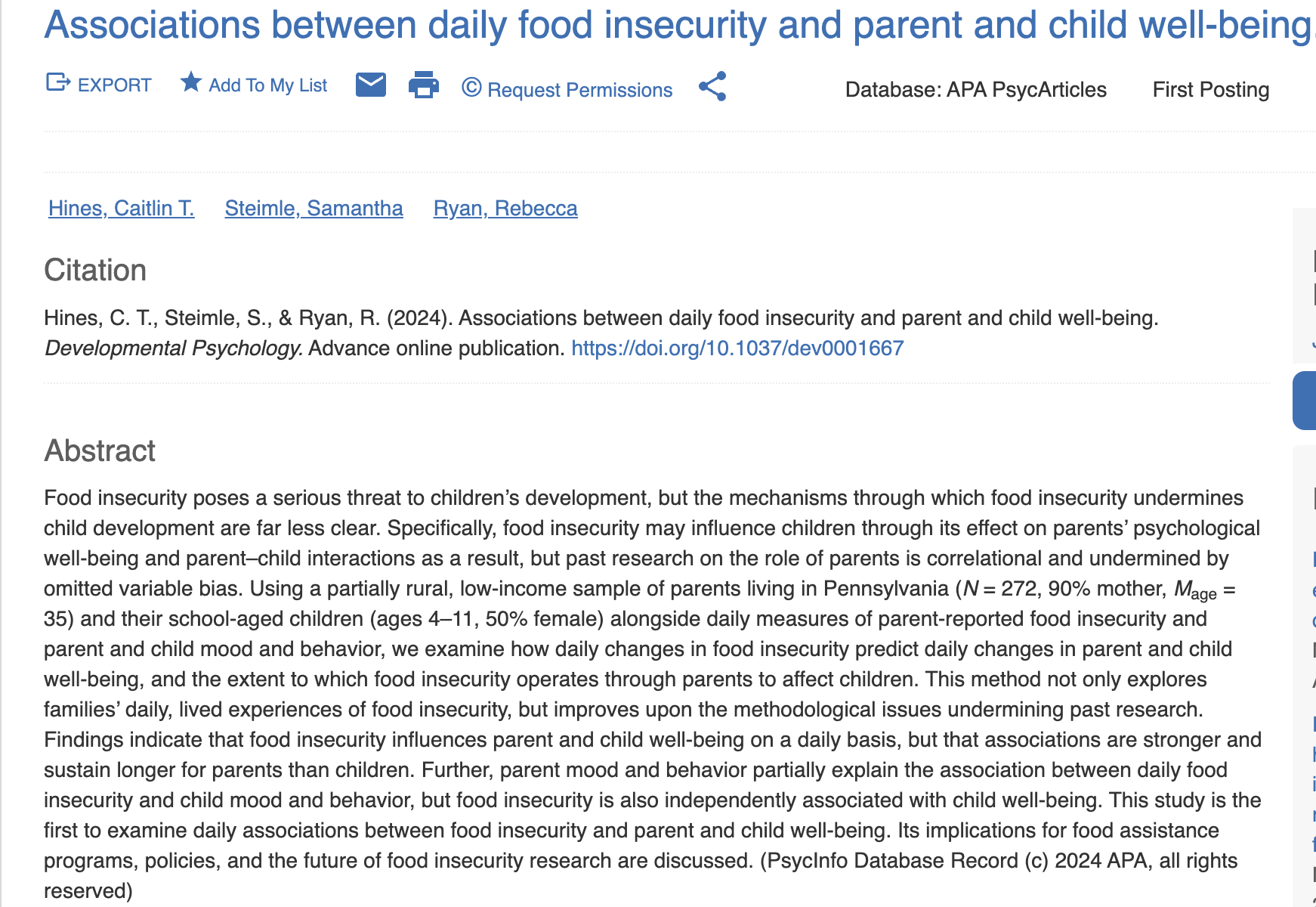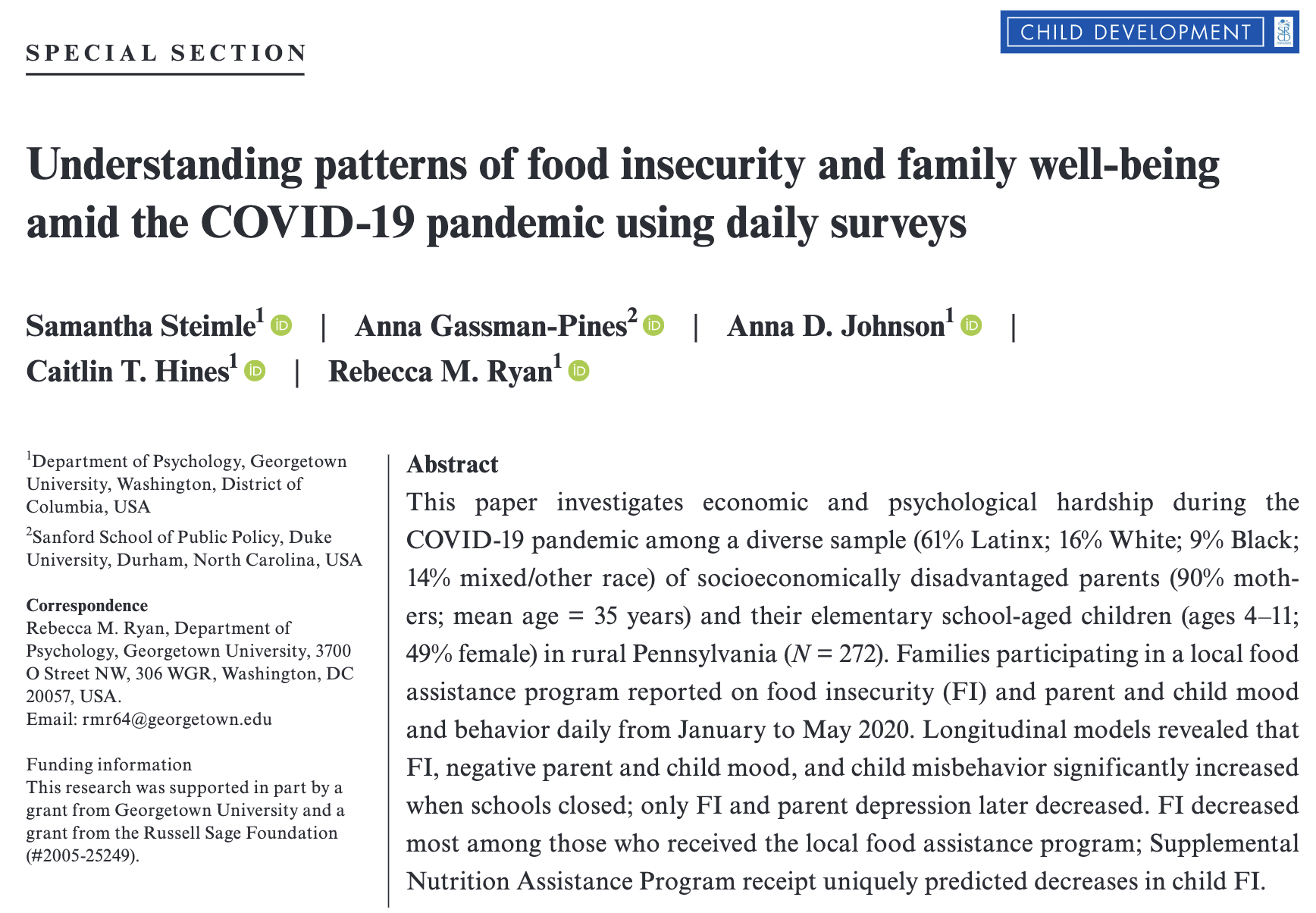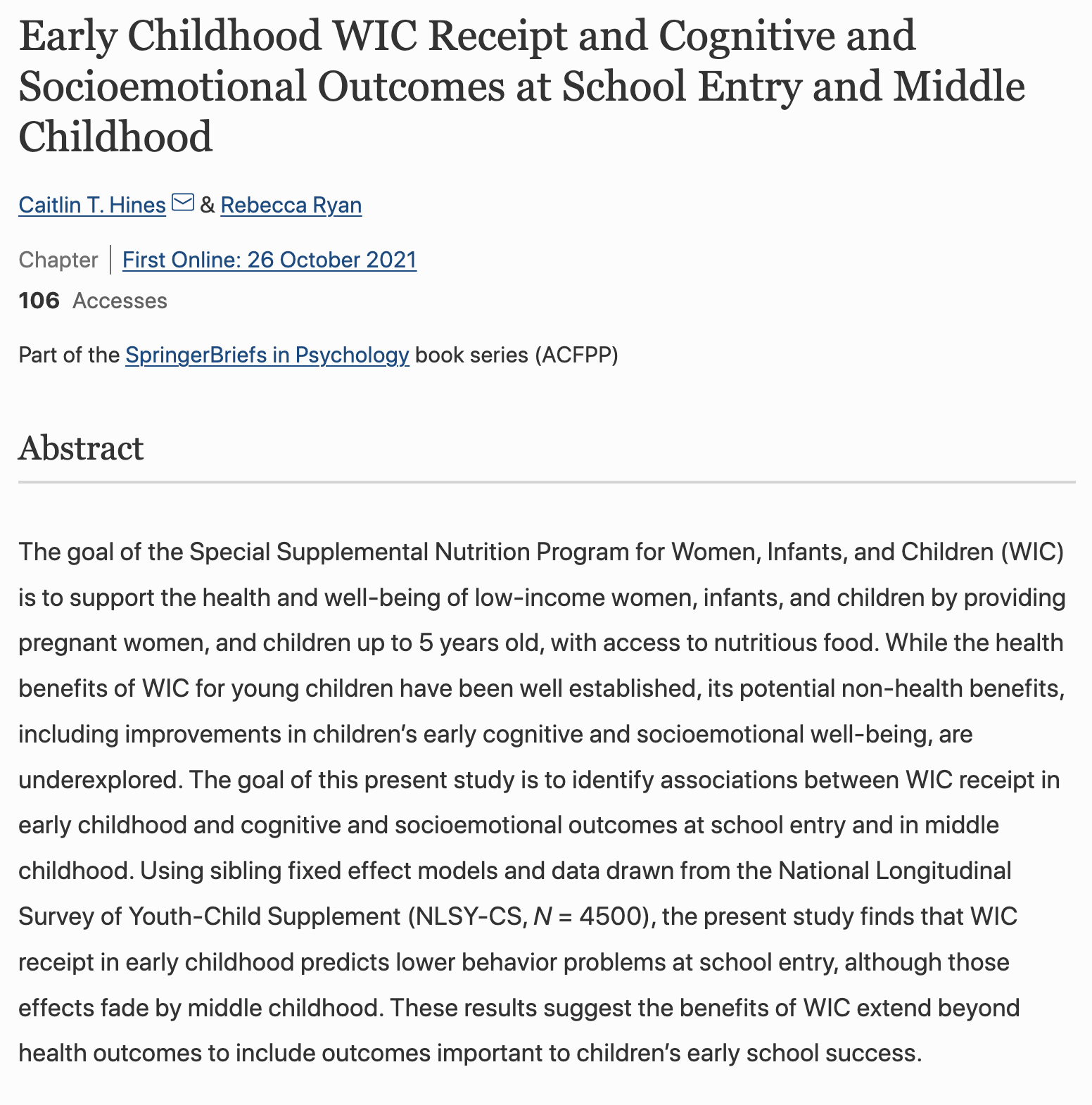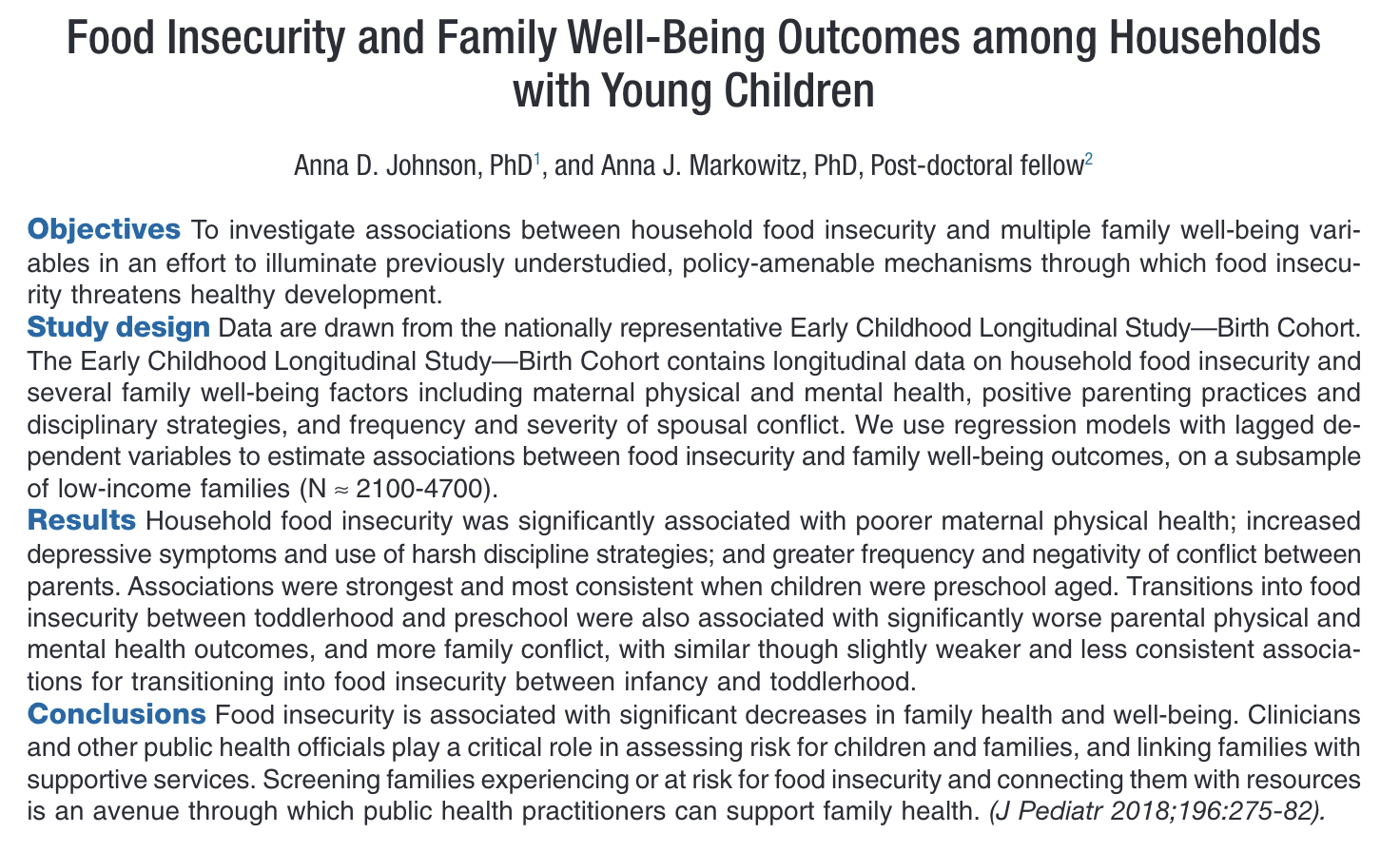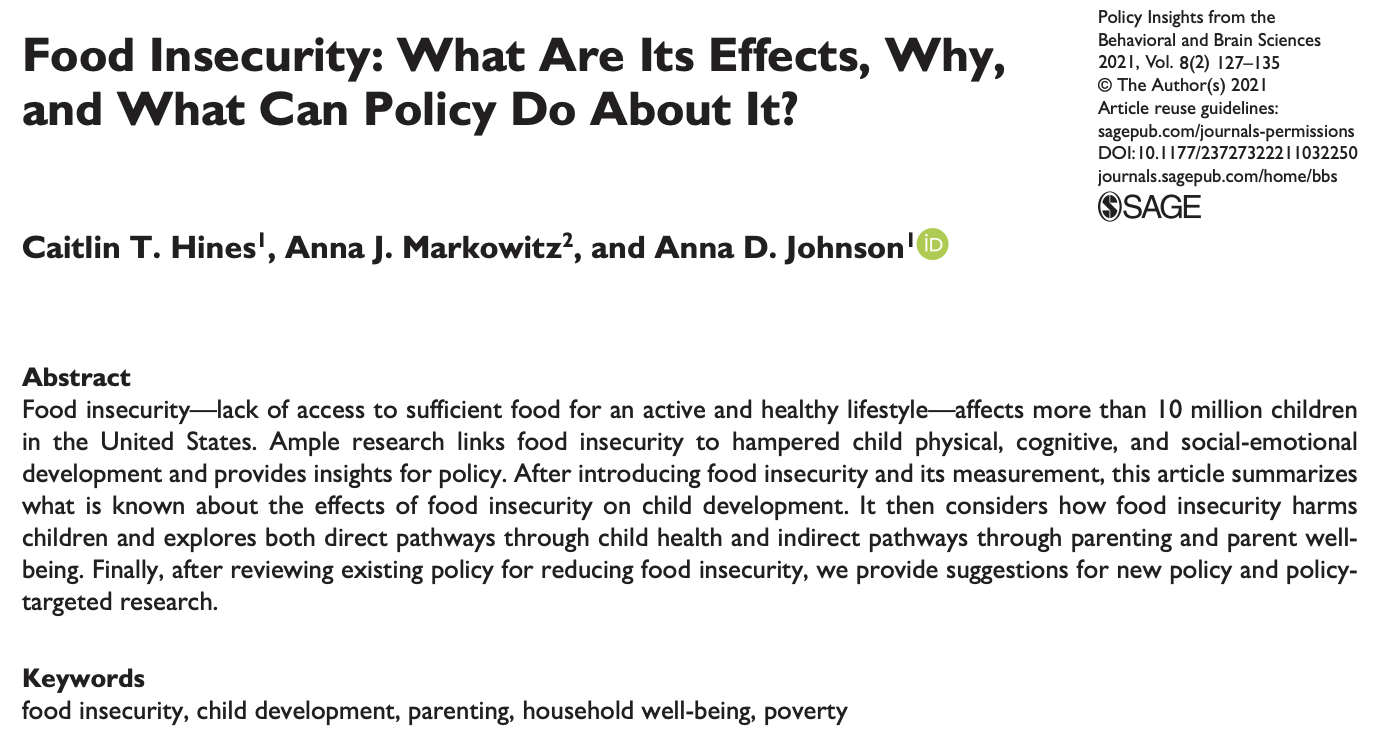
Food Insecurity
Active Projects
Project MEALS (Meals: Enhancing Access for Low-Income Students)
Funding:
William T. Grant Foundation, 2024-2027, $600,000
In 2024, our team began a three-year field experiment to enhance program enrollment, participation, and retention in Power Packs in ways that can meaningfully improve student and family wellbeing. This mixed methods study uses behavioral supports to reduce the administrative and psychological barriers families face at the enrollment and engagement stages of program participation. We plan to leverage the exogenous increase in program enrollment and engagement our interventions trigger to evaluate the program’s effect on food security, nutrition security, parent and child social and emotional wellbeing, and student academic outcomes.
The SNAP Daily Diary Study
Funding:
Duke University Pilot Study Grant, 2024-2026, $40,000
University of Michigan Pilot Study Grant, 2024-2025, $10,000
In 2024, Dr. Ryan, in collaboration with Drs. Anna Gassman-Pines (Duke University) and Natasha Pilkauskas (University of Michigan), began a study of parents and caregivers of young children enrolled in the Supplemental Nutrition Assistance Program (SNAP, formerly Food Stamps) that asks about their food security, meals, mood and behavior every day via a text-message-survey for a month. The aim of the study is to understand how SNAP receipt affects family wellbeing and, specifically, how long the nutritional and psychological benefits of SNAP last from one receipt date to the next.
Selected Publications
Hover over an abstract to view the citation or click to open the publication in your web browser.
Past Projects
The Power Packs Study
Funding:
Russell Sage Foundation, 2021-2023, $165,000
Georgetown University Pilot Study Grant, 2019-2020, $20,000
In a pilot study, we gathered daily diaries of food insecurity, meal routines, and family functioning from participating parents over several months to assess the impact of a unique food assistance program (the Power Packs Project) in the short and long-term on parent and child mood, behavior, and sleep. We also explored the implications of the COVID-19 pandemic on families’ food security and wellbeing, and are currently exploring the implications of COVID-19-related economic relief policies on families’ economic and psychological wellbeing.
In 2024, our team began a three-year field experiment to enhance program enrollment, participation, and retention in ways that can meaningfully improve student and family wellbeing. This study uses behavioral supports to both enhance families’ program engagement and evaluate the program’s effect on family food security, student academic and psychological outcomes and parent wellbeing.
Food insecurity, child development, and family functioning
Funding:
U.S. Department of Agriculture (USDA)’s Economic Research Service (ERS) Research Innovation and Development Grants in Economics (RIDGE) program
Food insecurity – or inadequate access to the quantity and quality of food needed to fuel development – impacts nearly 20% of young children in low-income households. In collaboration with Anna Markowitz – alumna of CDSP – Professor Johnson investigated how food insecurity at different developmental periods across early childhood impacts children’s kindergarten cognitive and social skills, and whether and to what extent a range of family wellbeing factors might explain the negative effect of food insecurity on child development.

